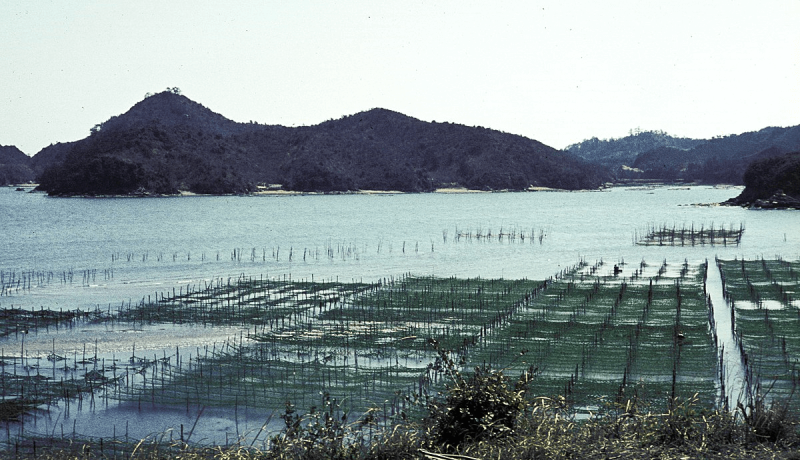Protecting crops from unpredictable weather, restoring soil health, and removing carbon from the atmosphere: Three ways seaweed is transforming agriculture
Protecting crops from unpredictable weather, restoring soil health, and removing carbon from the atmosphere: Three ways seaweed is transforming agriculture


Ascophyllum nodosum [is] also known as rockweed in many areas of the world. It’s been used for centuries by local people as a way to enrich the soil and support their crops.
Now, that knowledge has evolved into a more sustainable harvesting operation, extracting the biologically active compounds of this seaweed and turning it into an agricultural biotechnology with three major benefits: supporting crop growth in difficult conditions, restoring soil health, and removing carbon from the atmosphere, a key action for tackling climate change.
Seaweeds are more effective at capturing carbon than plants, partly due to their high photosynthesis rates. As a result, seaweed has been identified as a potential carbon sink that could help mitigate climate change and its potential has drawn attention from researchers keen to explore how this could be used in a multitude of industries, from agriculture to feed and food supplements.
Unlike kelp, which grows in deeper water and remains fully submerged, Asco grows in the tidal zone, spending half the day in freezing cold water and the other half drying out on rocks.
It has adapted to tolerate harsh conditions of freeze and thaw, dehydrating and rehydrating with the tides. By extracting the seaweed’s bioactive compounds in their processing facility and turning them into agricultural solutions, Acadian Plant Health says it is able to transfer Asco’s resilience to crops, when the biostimulants are applied directly to them.
This is an excerpt. Read the original post here

 | Videos | More... |

Video: Nuclear energy will destroy us? Global warming is an existential threat? Chemicals are massacring bees? Donate to the Green Industrial Complex!
 | Bees & Pollinators | More... |

GLP podcast: Science journalism is a mess. Here’s how to fix it

Mosquito massacre: Can we safely tackle malaria with a CRISPR gene drive?

Are we facing an ‘Insect Apocalypse’ caused by ‘intensive, industrial’ farming and agricultural chemicals? The media say yes; Science says ‘no’
 | Infographics | More... |

Infographic: Global regulatory and health research agencies on whether glyphosate causes cancer
 | GMO FAQs | More... |

Why is there controversy over GMO foods but not GMO drugs?

How are GMOs labeled around the world?

How does genetic engineering differ from conventional breeding?
 | GLP Profiles | More... |

Alex Jones: Right-wing conspiracy theorist stokes fear of GMOs, pesticides to sell ‘health supplements’




 Viewpoint — Fact checking MAHA mythmakers: How wellness influencers and RFK, Jr. undermine American science and health
Viewpoint — Fact checking MAHA mythmakers: How wellness influencers and RFK, Jr. undermine American science and health Viewpoint: Video — Big Solar is gobbling up productive agricultural land and hurting farmers yet providing little energy or sustainabilty gains
Viewpoint: Video — Big Solar is gobbling up productive agricultural land and hurting farmers yet providing little energy or sustainabilty gains Fighting deforestation with CO2: Biotechnology breakthrough creates sustainable palm oil alternative for cosmetics
Fighting deforestation with CO2: Biotechnology breakthrough creates sustainable palm oil alternative for cosmetics Trust issues: What happens when therapists use ChatGPT?
Trust issues: What happens when therapists use ChatGPT? 30-year-old tomato line shows genetic resistance to devastating virus
30-year-old tomato line shows genetic resistance to devastating virus California, Washington, Oregon forge immunization alliance to safeguard vaccine access against federal undermining
California, Washington, Oregon forge immunization alliance to safeguard vaccine access against federal undermining The free-range chicken dilemma: Better for birds, but with substantial costs
The free-range chicken dilemma: Better for birds, but with substantial costs ‘You have to treat the brain first’: Rethinking chronic pain with Sanjay Gupta
‘You have to treat the brain first’: Rethinking chronic pain with Sanjay Gupta
